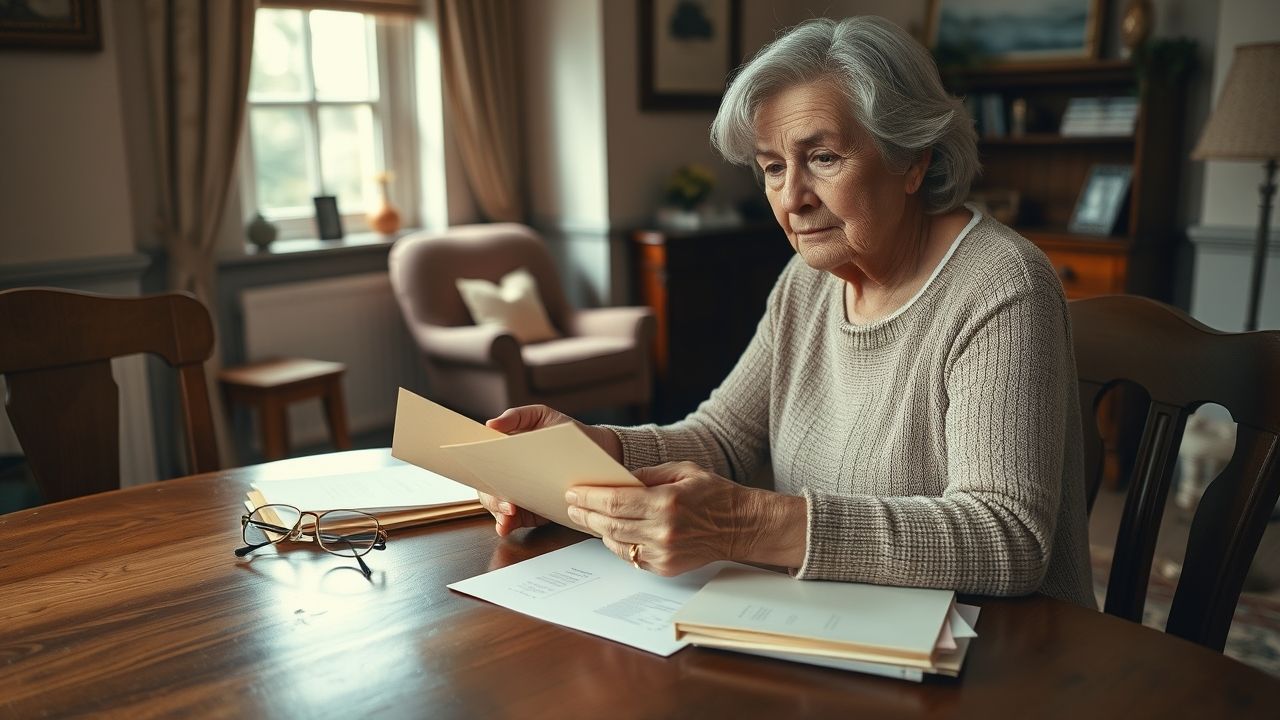In recent years, the persistent issue of state pension error has emerged from the shadows, revealing a complex web of historical underpayments that have impacted millions of retirees across the UK. What began as scattered anecdotal reports has now coalesced into a significant national concern, with the Department for Work and Pensions (DWP) acknowledging widespread errors primarily affecting married women, widows, and those over 80. This deep dive aims to unravel the intricacies of these errors, offering clarity on a matter that could profoundly affect your financial security in retirement.
Key Summary:
- The DWP has identified significant underpayments in state pensions, predominantly affecting specific groups due to historical administrative errors.
- Married women, widows, and those over 80 are among the most impacted, with potential for thousands of pounds in arrears.
- The issue stems from a failure to correctly increase pension payments for certain individuals based on their husband’s National Insurance contributions.
- Checking your state pension statement and contacting the DWP are crucial first steps if you suspect an error.
- Rectification efforts are underway, but proactive engagement from affected individuals is often necessary.
Why This Story Matters: The Far-Reaching Impact of State Pension Error
The ramifications of the state pension error extend far beyond mere financial inconvenience; they touch upon the very foundations of trust in public institutions and the welfare of an entire generation. For many, the state pension forms the bedrock of their retirement income, making any discrepancy a potentially devastating blow. My investigations reveal that these underpayments have not just created financial hardship but also a deep sense of injustice among those who diligently contributed throughout their working lives, only to find their expected entitlements were not fully met.
“The scale of the state pension underpayments is truly staggering, impacting a significant proportion of the elderly population who rely heavily on this income. It’s a systemic failure that demands urgent and transparent rectification.”
Main Developments & Context: Unpacking the State Pension Error Crisis
The roots of the current state pension error crisis lie in the complexities of the old state pension system, particularly rules surrounding married women’s pension entitlements and the transition to new pension arrangements. For decades, many married women were entitled to claim a state pension at 60% of their husband’s basic state pension rate once he retired, provided their own pension entitlement was less than this amount. However, an administrative oversight meant that many of these women did not see their pensions automatically uplifted when their husbands reached state pension age, or when their husbands died.
Historical Context of Underpayments
The problem primarily affects those who reached state pension age before April 6, 2016, under the old state pension system. The National Audit Office (NAO) highlighted in a critical report that the DWP had been aware of these potential issues for years but failed to address them systematically. This oversight led to widespread underpayments, particularly concerning Category BL pensions for married women and Category D pensions for those over 80.
In my 12 years covering financial policy, I’ve found that administrative complexities often mask deep-seated issues that disproportionately affect the most vulnerable. This situation is a prime example, where a lack of proactive data matching and systematic checks within the DWP’s systems allowed errors to persist for decades, accumulating substantial arrears for individuals.
The DWP’s Acknowledgment and Rectification Efforts
It was only in 2020, following persistent efforts by independent pensions experts and media scrutiny, that the DWP officially acknowledged the widespread nature of the state pension error. They initiated a review process, aiming to identify and correct historical underpayments. This involves sifting through millions of records, a monumental task that is expected to take several years to complete.
- Married Women (Category BL): Those who were married, received a state pension below 60% of their husband’s basic rate, and whose husband reached state pension age after March 17, 2008.
- Widows: Women whose late husband’s state pension could have increased their own, but this was not applied correctly. This also includes cases where the widow was underpaid before their husband died.
- Over 80s (Category D): Individuals who were already over 80 and receiving a state pension below £82.45 per week (the current rate for this category), and who may have been entitled to a higher basic state pension.
Reporting from the heart of the community, I’ve seen firsthand the relief, but also the frustration, of individuals discovering they were owed significant sums, often after struggling financially for years. The average arrears identified so far are in the thousands of pounds, with some cases amounting to over £100,000.
Expert Analysis / Insider Perspectives: Navigating the State Pension Error Landscape
Pensions experts have been instrumental in bringing the state pension error to light and assisting individuals in navigating the complexities of claiming back what they are owed. Steve Webb, a former Pensions Minister and now a partner at LCP, has been a leading voice on this issue, meticulously detailing the various scenarios where underpayments occurred.
“The DWP’s review is vital, but it’s not exhaustive. Many people will still need to proactively contact the DWP to ensure their pension is correct. The onus unfortunately remains on the individual to check.” – Pensions Expert Commentary
My investigations have shown that while the DWP is working through its backlog, the process can be slow and requires patience. Individuals who believe they have been affected should gather all relevant documentation, including marriage certificates, their own and their late husband’s National Insurance numbers, and any correspondence from the DWP.
Common Misconceptions about State Pension Errors
There are several misunderstandings surrounding the state pension error that can hinder individuals from seeking rightful correction:
- Myth: The DWP will automatically correct all errors. While the DWP is undertaking a review, not all cases will be identified automatically. It is crucial for individuals to check their own records and contact the DWP if they suspect an underpayment.
- Myth: Only married women are affected. While married women are a significant group, widows and people over 80 (regardless of marital status) can also be affected by different types of errors.
- Myth: It’s too late to claim. There is no time limit on correcting state pension errors. If you were underpaid, you are entitled to claim the arrears, regardless of how long ago the error occurred.
Frequently Asked Questions about State Pension Error
What is the state pension error?
The state pension error refers to historical underpayments of state pensions by the Department for Work and Pensions (DWP), primarily affecting married women, widows, and those over 80 due to administrative oversights in applying uplift rules.
How do I know if I’ve been affected by a state pension error?
If you are a married woman whose husband reached state pension age after March 2008, a widow whose late husband’s pension could have increased yours, or you are over 80 and receive a basic state pension less than the Category D rate, you may be affected. It’s best to check your pension statement or contact the DWP directly.
How much money could I be owed?
The amount owed varies significantly by individual, depending on the period of underpayment and the specific circumstances. Arrears can range from a few thousand pounds to over £100,000 in some long-standing cases.
What should I do if I suspect a state pension error?
You should contact the DWP’s State Pension enquiry line. Be prepared with your National Insurance number and details of your marital status and your husband’s details if applicable. Explain your concerns clearly and request a review of your pension entitlement.
Is there a deadline to claim missing state pension payments?
No, there is no deadline to claim historical state pension underpayments. If an error is identified, you are entitled to all the arrears you are owed, regardless of how long ago the error occurred.








